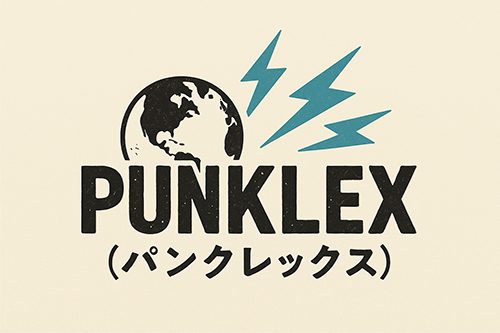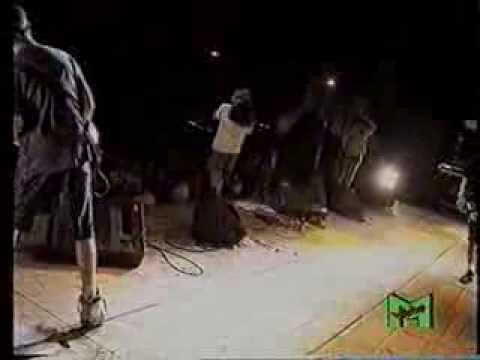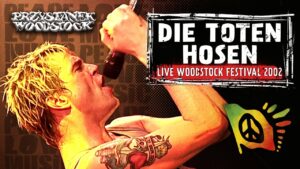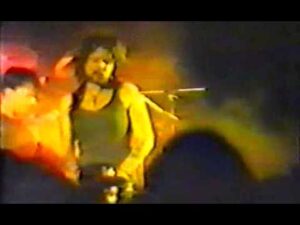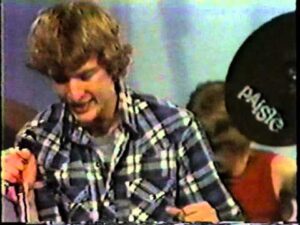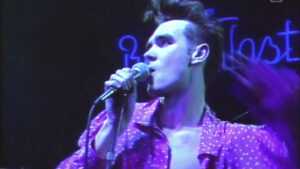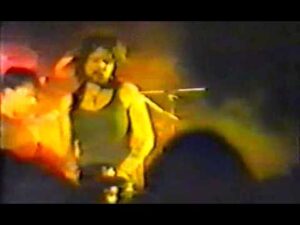Formation & Members
In the turbulent and politically charged atmosphere of the early 1980s, Negazione emerged as one of the pioneering forces in the European punk and hardcore scene. Formed in 1983 in Turin, Italy, the band was initially composed of Guido Sassola (known as “Zazzo”) on vocals, Roberto “Tax” Farano on guitar, Marco Mathieu on bass, and Fabrizio Fiegl on drums. This lineup would become the core of Negazione, although the band saw several changes in drummers over the years, with Fabrizio being replaced by Orlando Furioso, and later by other musicians during their active years.
Negazione’s formation was deeply influenced by the socio-political climate of Italy at the time, as well as the burgeoning punk scenes in the United States and the UK. The members were driven by a desire to blend the raw energy of punk with the speed and intensity of hardcore, creating a sound that was both aggressive and thought-provoking. Their DIY ethic and anti-establishment stance quickly set them apart in the Italian music scene.
Musical Style & Characteristics
Negazione’s musical style is a fierce amalgamation of punk’s rebellious spirit and hardcore’s relentless energy. Their sound is characterized by rapid tempos, abrasive guitar riffs, and a raw, unpolished production that captures the urgency of their message. Zazzo’s vocals are particularly noteworthy, delivering impassioned and often politically charged lyrics with a visceral intensity that resonates with the listener.
The band’s music often addresses themes of alienation, social injustice, and personal empowerment, reflecting the frustrations and aspirations of a generation seeking to challenge the status quo. Their songs are typically short, fast, and packed with a punch, embodying the ethos of hardcore punk while also incorporating melodic elements that add depth to their sound.
Key Works & Discography
Negazione’s discography is a testament to their evolution as a band and their influence on the punk and hardcore genres. Their debut EP, “Tutti Pazzi,” released in 1985, set the stage for their subsequent releases with its raw energy and aggressive sound. The band’s first full-length album, “Lo Spirito Continua,” released in 1986, is often regarded as a cornerstone of European hardcore, featuring tracks like “Tutti Pazzi” and “Incubo Di Morte” that remain fan favorites.
In 1987, Negazione released “Little Dreamer,” an album that showcased their ability to blend hardcore intensity with melodic sensibilities. This release was followed by “100%” in 1990, which further cemented their reputation as pioneers in the genre. Their final studio album, “Sempre In Bilico,” released in 1991, marked a departure from their earlier sound, incorporating more complex arrangements and introspective lyrics.
Influence on Other Bands/Scenes
Negazione’s impact on the punk and hardcore scenes extends far beyond their native Italy. They were instrumental in the development of the European hardcore scene, inspiring countless bands across the continent with their DIY approach and uncompromising sound. Their willingness to tour extensively and share stages with international acts helped to bridge the gap between different punk scenes, fostering a sense of global community among fans and musicians alike.
In addition to their influence on the European scene, Negazione’s music resonated with bands in North America and beyond. Their blend of hardcore punk with melodic elements can be seen in the works of numerous bands that followed in their wake, contributing to the evolution of the genre and inspiring a new generation of musicians to push the boundaries of punk music.
Breakups or Reunions
Negazione’s initial run came to an end in 1992, following the release of “Sempre In Bilico.” The band members decided to part ways, citing the challenges of maintaining the intense pace they had set for themselves over nearly a decade. Despite their breakup, the band’s legacy continued to grow, with their music reaching new audiences through reissues and compilations.
In recent years, there has been speculation about potential reunions, fueled by occasional appearances of band members at punk festivals and events. However, as of now, there has been no official reunion of Negazione. The band’s members have pursued various musical and artistic endeavors, continuing to contribute to the cultural landscape in different capacities.
Current Reputation & Legacy
Today, Negazione is regarded as one of the most influential bands in the history of European punk and hardcore. Their music continues to inspire new generations of punk enthusiasts, and their albums are considered classics of the genre. The band’s commitment to authenticity and their fearless exploration of social and political themes have solidified their place in punk history.
Negazione’s legacy is also reflected in the numerous tribute bands and cover versions of their songs that have emerged over the years. Their influence can be heard in the music of contemporary punk and hardcore bands, demonstrating the enduring appeal of their sound and message.
Conclusion
Negazione’s journey from the gritty streets of Turin to the forefront of the international punk scene is a testament to their passion, creativity, and determination. Their music, characterized by its raw energy and powerful lyrics, continues to resonate with audiences worldwide. As pioneers of European hardcore, Negazione’s impact on the genre and their contribution to the global punk community is undeniable.
While the band members may have moved on to new ventures, the spirit of Negazione lives on in the hearts of fans and musicians alike. Their story serves as a reminder of the power of music to challenge, inspire, and unite people across borders and generations.
